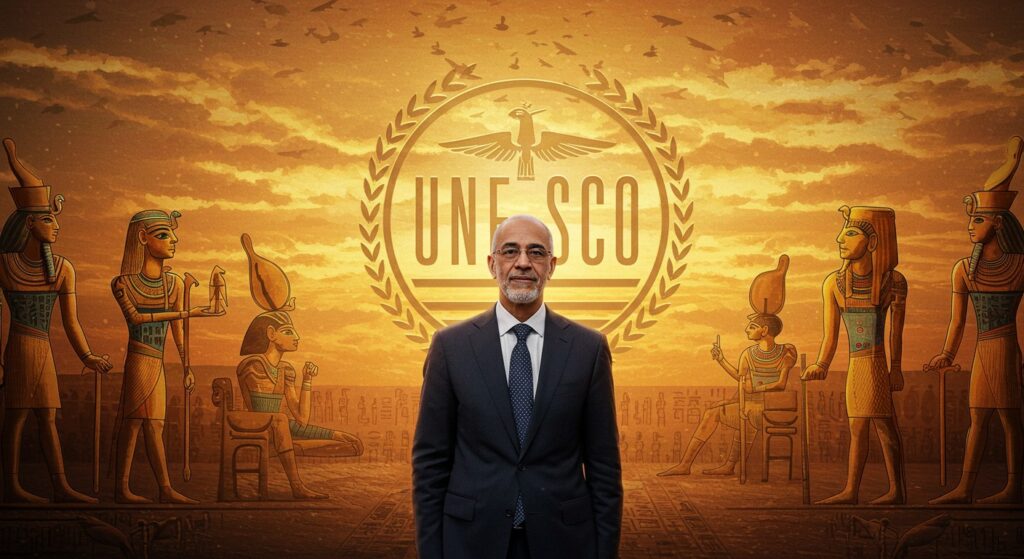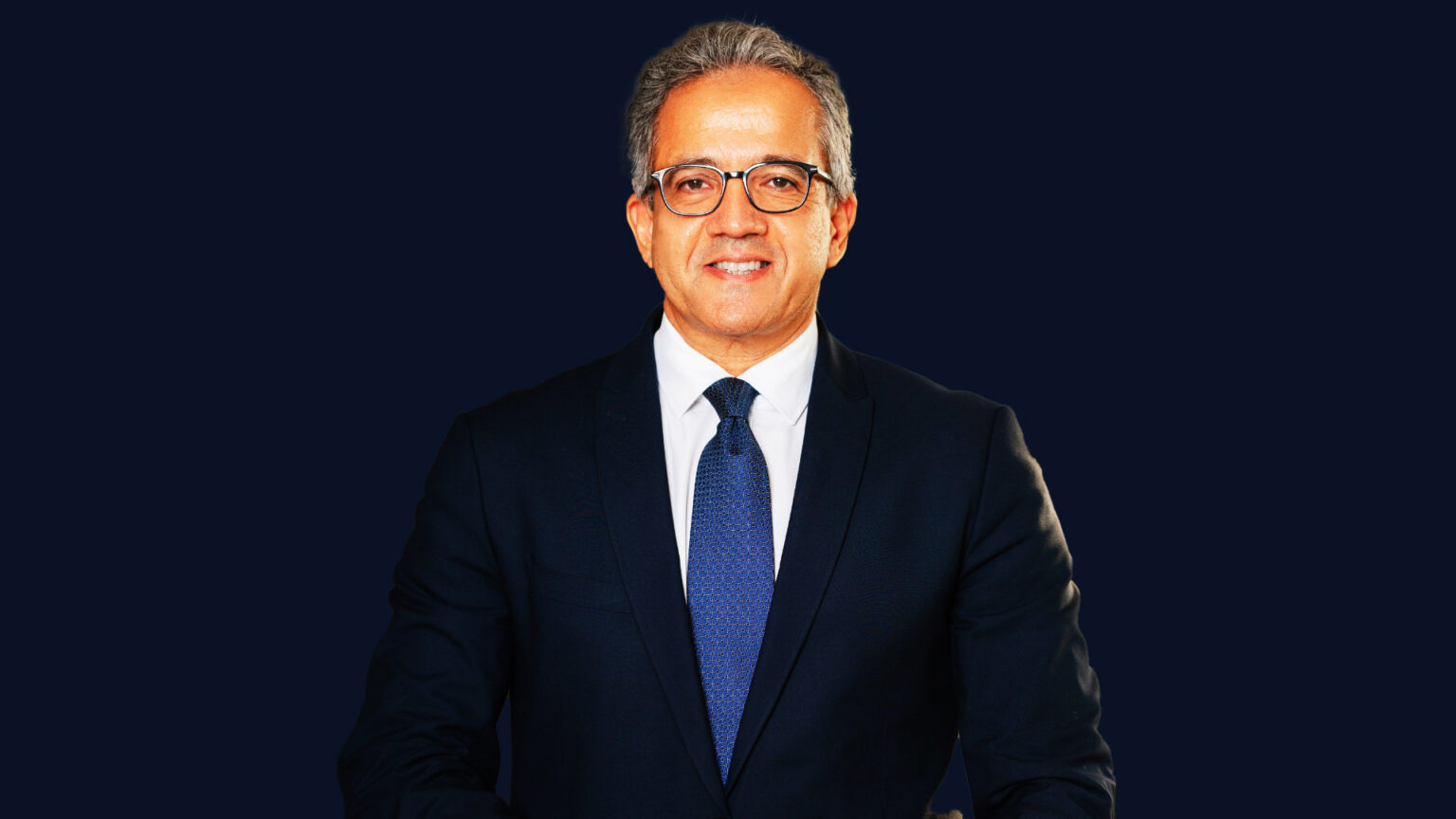A new wind is blowing through UNESCO. Egyptologist and former Egyptian minister, Khaled El-Enany, was designated on Monday, October 6th, to take the helm of the United Nations Educational, Scientific and Cultural Organization. This historic choice, in more ways than one, ushers in a new era for the institution.
A Landslide Victory for a Man of Culture
With a resounding 55 votes out of 57 cast, UNESCO’s Executive Board has clearly endorsed the candidacy of Khaled El-Enany. This overwhelming support for the Egyptian candidate is a testament to the recognition of his exceptional career. An internationally renowned Egyptologist, he has served as Egypt’s Minister of Antiquities, and later as Minister of Tourism and Antiquities. He has overseen large-scale projects, including the creation of the National Museum of Egyptian Civilization, which houses the royal mummies. His career, built amidst temples and sarcophagi, has prepared him to lead the institution that safeguards the world’s heritage.
A Powerful Symbol for the Arab World and Africa
Khaled El-Enany’s election is a landmark event: he becomes the first representative of an Arab nation to lead UNESCO. He is also the second African to hold this position, following Senegal’s Amadou Mahtar Mbow. This choice sends a strong signal in favor of multilateralism and cultural diversity, values cherished by the organization. Indeed, his candidacy was supported by both the African Union and the Arab League.

The Challenges of a Four-Year Mandate
Khaled El-Enany will take office at a pivotal moment for UNESCO. He inherits an institution that has regained a degree of stability under the leadership of France’s Audrey Azoulay, but which faces numerous challenges. The new Director-General will need to address several key areas:
- Modernizing the Institution: Khaled El-Enany has pledged to work “hand in hand with all member states to build a roadmap together to modernize UNESCO and project it into the future.” He envisions a more proactive organization, capable of anticipating crises.
- Combating Politicization: UNESCO has often been the stage for political tensions. The new Director-General intends to prioritize technical deliberations to preserve the institution’s neutrality.
- Securing Funding: UNESCO’s budget is a persistent concern. Khaled El-Enany has expressed his intention to attract more voluntary contributions, notably through debt-swap mechanisms and greater engagement with the private sector.
- Addressing Major Global Issues: UNESCO is at the forefront of crucial global concerns such as education for all, the protection of endangered heritage, the green transition, and the impact of new technologies.
Confirmation Awaited in Samarkand
This decision must be formally ratified by the UNESCO General Conference, which will be held in Samarkand, Uzbekistan. The confirmation is expected on November 9th, with the official assumption of duties scheduled for November 14th. He will succeed Audrey Azoulay, who is completing her second and final term.
The election of Khaled El-Enany, with his dual expertise as a scientist and a politician, and his fluency in French, opens promising prospects for UNESCO. His campaign slogan, “UNESCO for the People,” signals a desire to make the organization more accessible and closer to the world’s citizens—an ambition that will be closely watched over the next four years.



